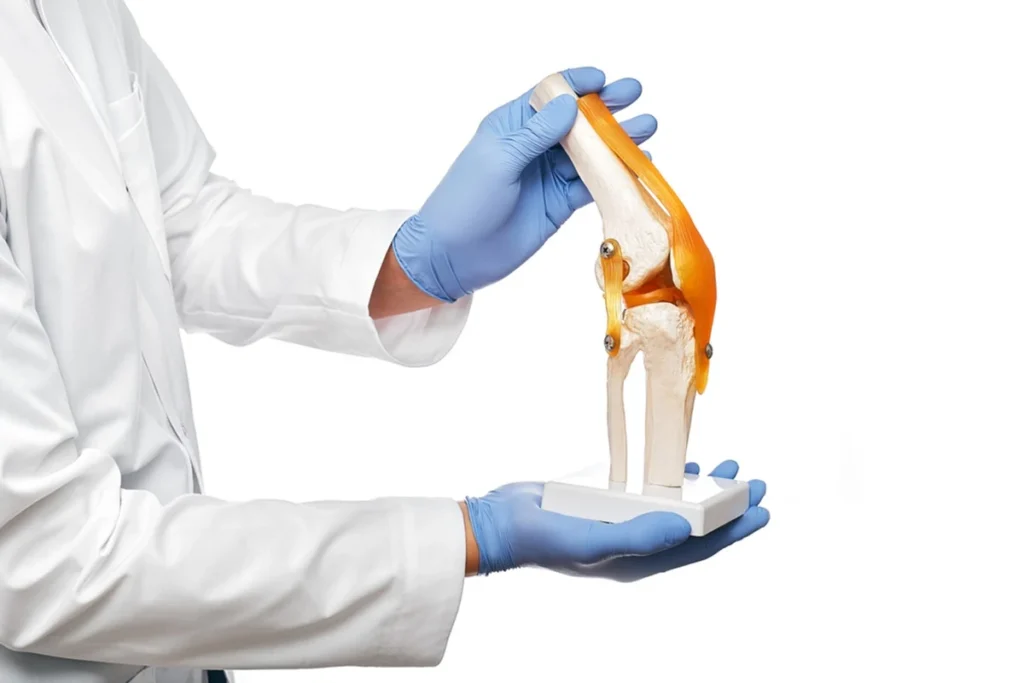If getting up from a chair feels like a task, and stairs feel like a challenge your knees are losing every day, it may be time to consider a more permanent solution. When simple movement becomes complicated, it’s not just pain. It’s a loss of freedom. And for many, robotic knee replacement offers a way back.
Whether it’s due to osteoarthritis, an old injury, or wear-and-tear that no longer responds to medication or physiotherapy, total knee arthroplasty (TKA) has become one of the most commonly performed and most successful orthopaedic surgeries in India.

Sant Parmanand Hospital houses one of the top knee replacement surgeon/s in delhi, giving patients access to personalised care and advanced surgical techniques designed for greater precision, less downtime, and more natural results. But before you reach the operating room, there’s a lot that needs to be understood—and done.
The traditional procedure for total knee replacement surgery involves replacing the damaged parts of the knee with prosthetic components by doing an open surgical procedure. This approach relies upon the surgeon’s experience, manual measurements, and visual assessment using X-rays. Although it is a tried-and-tested technique, it comes with some limitations, especially in terms of precision.
Unlike the traditional way, robotic knee surgery expert in Delhi operate using an advanced technology, where a 3D virtual model of your knee is created before surgery, which allows the orthopaedic surgeon to plan every step of the procedure in advance.
However, the robot doesn’t perform the surgery on its own. It is only a tool—an extension of the surgeon’s hand, that simply enhances accuracy, reduces soft tissue trauma, and allows for smaller incisions. To put it in simpler words, this means you recover quicker, feel less pain after surgery, and face fewer chances of things like infections or post-op issues. Plus, the new joint is more likely to last longer and work more naturally.
Robotic surgery isn’t just for a select few. It is for anyone who qualifies for a traditional knee replacement and is looking for more precision and potentially better long-term outcomes. There are many patients in their 40s and 50s who now opt for this surgery to maintain an active lifestyle without the constant drag of joint pain. At Sant Parmanand Hospital, a top knee replacement surgeon in Delhi, will make the final call after a complete and careful evaluation, taking into account your age, medical history, lifestyle, and degree of joint damage.
Knee surgery isn’t just about what happens in the operating theatre, but also about what happens in the days and weeks leading up to it.
If you’re scheduled for a robotic knee replacement, the preparation you do beforehand plays a big role in how well (and how quickly) you recover after. A bit of planning now can mean fewer complications, a smoother hospital stay, and a better result overall.
Robotic knee replacement may be advanced, but recovery still depends on what you do before you enter the OT. Here’s what most experienced orthopaedic teams—including the top knee replacement surgeon in Delhi at Sant Parmanand Hospital—recommend before surgery:
Before anything else, your doctor will want a complete picture of your health. Tests they might want you to get usually include:
You might also meet with an anaesthesiologist, who’ll go through your reports. This would help them decide what kind of anaesthesia is safest for you.
Don’t hold back, and tell your surgeon everything you’re taking, even herbal supplements or homeopathy. You may be advised to:
Important: Never stop any medication unless your doctor tells you to.
If you’re overweight or underweight, your recovery could take longer. A balanced diet leading up to the surgery helps you heal better and lowers the risk of complications. A few things that go a long way:
Smoking affects how your body heals after surgery, and alcohol can interfere with anaesthesia or other medications. Ideally, stop both at least two weeks before surgery. It may not be easy, but it’s worth it.
You don’t want to come home and trip on a rug or struggle to sit. Set things up in advance:
Ask your doctor if you’ll need a walker, raised toilet seat, or support devices post-op. It is best to have them ready.
Some patients are asked to do light physiotherapy before surgery to strengthen the muscles around the knee. Even a few sessions can make rehab easier and teach you how to use support gear like crutches.
It’s not mandatory for everyone, but it helps.
You’ll be asked to stop eating or drinking 6 to 8 hours before surgery. If you take medications in the morning (like thyroid or BP tablets), ask if you should still take them with a sip of water.
It’s normal to feel nervous. But the more you know, the more in control you’ll feel. Ask the best knee orthopedic surgeon in Delhi about:
Having clear answers helps you mentally prepare, and that matters more than people realise.
Your hospital bag doesn’t need much. Just bring:
Robotic knee replacement may be advanced, but your recovery still depends on what you do before you enter the OT.
A full health check-up, medication review, and some prep at home.
Usually around 1 to 2 hours, depending on the case.
There’s some discomfort, but most patients say it’s manageable and better than expected.
You’ll be up and walking in a day or two, with full recovery in a few weeks to months.
Make your space safe, line up help, and get support devices ready if advised.
Blood tests, ECG, chest X-ray, and a basic fitness check for anaesthesia.
Only if your doctor tells you to. Never make changes on your own.
Ask questions, know what to expect, and trust your team. You’re not doing this alone.